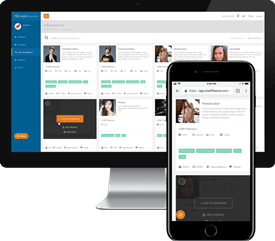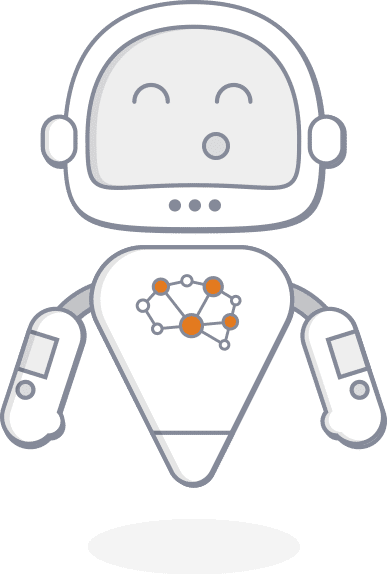In the dynamic world of digital marketing, artificial intelligence (AI) has become a transformative force, particularly in the realm of influencer marketing. AI technologies offer innovative ways for brands and influencers to enhance their partnerships and streamline campaign processes. However, as with any technology, the use of AI influencer marketing comes with its own set of challenges and considerations. This article explores how AI is shaping the influencer marketing landscape, its benefits, potential pitfalls, and what future trends we might anticipate.
Leveraging AI in Influencer Marketing
AI-Driven Influencer Discovery and Matchmaking: One of the primary uses of AI in influencer marketing is in the discovery and vetting process. AI-powered tools can analyze vast amounts of data to identify influencers whose audiences best align with a brand’s target demographic. Platforms like AspireIQ or Upfluence use machine learning algorithms to sift through profiles, engagement rates, and content themes to recommend the best matches, ensuring that marketing efforts are targeted and efficient.
Customized Content Creation: AI can also assist in the content creation process by providing data-driven insights into what types of content perform best. AI marketing tools can analyze historical data and engagement trends to advise influencers on the optimal times to post, the content formats that resonate most with their audience, and even predict future content trends. This not only enhances the relevancy of content but also improves the chances of campaign success.
Enhanced Performance Analytics: Beyond matchmaking and content creation, AI excels in campaign monitoring and analytics. AI systems can track the performance of influencer campaigns in real-time, providing metrics such as engagement rates, click-through rates, and conversion rates. This immediate feedback allows brands and influencers to tweak their strategies mid-campaign for better results.
Although AI has not been implemented at Intellifluence, we have Sallybot, who intervenes in transactions to ensure that they progress smoothly from start to finish. Sallybot provides reminders to influencers when a review is needed, flags a transaction when the review is overdue, and prompts a response from both brands and influencers.
Examples of AI Influencers
The concept of AI influencers, entirely digital personas that interact with real users, represents a fascinating application of artificial intelligence in marketing. Virtual influencers like Lil Miquela and Shudu have garnered massive followings and have been used by major brands to promote products. These AI-created influencers can be programmed to engage with followers continuously, bypassing the human limitations of traditional influencers.

Featured Influencer: Amber Nelson
Hey there! I’m Amber, a passionate and honest influencer specializing in unboxings, monthly subscription boxes, and product reviews. From fitness and beauty to pets, self-care, wellness, and more, I dive into a wide range of topics to provide my followers with authentic and engaging content. I absolutely love collaborating with brands that align with my values and that I wholeheartedly believe in or would recommend to my loyal audience.
Positive Impacts of AI in Influencer Marketing
- Scalability: AI can handle large datasets and manage multiple campaign variables, making it easier for brands to scale their influencer marketing efforts without a corresponding increase in manual oversight.
- Precision Targeting: Through sophisticated data analysis, AI helps ensure that marketing messages reach the most relevant audiences, thereby increasing the precision and effectiveness of campaigns.
- Cost Efficiency: By automating routine tasks and improving targeting accuracy, AI can help reduce the costs associated with finding and managing influencer partnerships.
Challenges and Considerations
While AI presents numerous opportunities in influencer marketing, there are also several challenges to consider:
- Loss of Personal Touch: AI-driven communications can sometimes lack the personal touch that human interactions inherently possess. This can affect the authenticity, which is a core component of successful influencer marketing.
- Privacy Concerns: The use of AI in analyzing audience data raises significant privacy concerns. Brands need to ensure they are compliant with data protection regulations such as GDPR when using AI marketing tools that handle personal data.
- Over-reliance on Technology: Relying too heavily on AI can lead to a disconnect between the brand and its market if not carefully managed. It’s crucial that brands maintain an understanding of their strategy and audience beyond what AI tools suggest.
- Ethical Considerations: The use of AI influencers raises ethical questions regarding transparency. Audiences may not always realize they are interacting with AI, which could lead to trust issues if the influencer’s AI nature is not disclosed.
Future Trends
Looking ahead, AI is poised to become even more integrated into influencer marketing strategies. We can expect advancements in AI technology to lead to even more personalized and interactive marketing experiences. However, as AI capabilities evolve, so too must the regulatory and ethical frameworks governing their use to ensure that AI influencer marketing remains a fair, transparent, and effective field.
Artificial intelligence undoubtedly offers exciting possibilities for enhancing influencer marketing strategies. From improving how brands find and collaborate with influencers to optimizing content creation and campaign analysis, AI can provide significant advantages. However, navigating the challenges—particularly those related to ethics and privacy—will be crucial for companies looking to integrate AI into their marketing strategies effectively. As the technology progresses, maintaining a balance between leveraging AI’s power and preserving the human element that underpins the influencer-brand relationship will be key.

SallyBot is committed to helping users get the most out of Intellifluence. By helping brands create campaigns, providing unparalleled customer service and offering useful advice, nothing makes SallyBot happier than hearing she is liked… Really, really liked.






